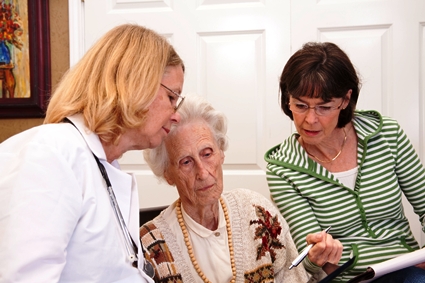
As closing keynote speaker at the 27th Institute for Healthcare Improvement (IHI) Annual Forum this past December, Don Berwick, former head of the Centers for Medicare & Medicaid Services and senior fellow with IHI , suggested that “relationships will be the foundation of health care’s new age.” “It’s not power or accountability or reward or punishment or score sheets or metrics or profit for its own sake. It’s a search for meaning in the value of the person who has come to honor us with his or her quest for some help.” Dr. Berwick went on to lay out nine steps for moving into what he called “the moral era.”
, suggested that “relationships will be the foundation of health care’s new age.” “It’s not power or accountability or reward or punishment or score sheets or metrics or profit for its own sake. It’s a search for meaning in the value of the person who has come to honor us with his or her quest for some help.” Dr. Berwick went on to lay out nine steps for moving into what he called “the moral era.”
- Stop excessive measurement
- Abandon complex incentives
- Decrease focus on finance
- Avoid professional prerogative at the expense of the whole
- Recommit to improvement science
- Embrace transparency
- Protect civility
- Listen. Really listen
- Reject greed
Here at the PFCC Innovation Center of UPMC, we were immediately struck by the fact that the Patient and Family Centered Care Methodology and Practice (PFCC M/P) addresses every one of Berwick’s nine steps (Berwick says much more about each of them than the bullet list above – this more descriptive version is worth the read.)
Gaining the Patient-Family Perspective
For those of you who aren’t familiar with the PFCC M/P it is a simple and sustainable approach for viewing all care through the eyes of patients and families). A unique tool within the PFCC M/P is Shadowing — which is the direct observation of each step of patients’ and families’ journeys through the healthcare system. Shadowing is an interactive process wherein Shadowers collect both objective and subjective information – where the patient and family go, who they interact with, and for how long, as well as patients’ and families’ (and the staff’s) impressions, feelings, reactions, and suggestions.
Full Partners in Care Design
Shadowing enables true co-design with patients and families as full partners. It is during Shadowing that we identify what actually matters to patients and families at each step of care delivery. Then care teams representing every function and level of staff (which breaks down the silos so ubiquitous in healthcare) collaborate to close the gaps between the current and ideal state of care delivery, as prioritized by patients and families. It’s a simple and sustainable approach to transforming care delivery; the sustainability is built in as Shadowing is repeated periodically over time to continually identify new actionable opportunities for improvement. Indeed, many PFCC Working Groups have been active for over eight years.
From Confusion to Simplicity
Simple is the operative word here. As Berwick says about the second of his nine steps – abandoning complex incentives — “We need a moratorium, I think, on complex incentive programs for individual health care workers, especially for doctors, nurses and therapists. If a program is too complicated to understand, too complicated to act upon by getting better, then it isn’t an incentive program. It’s a confusion program. It’s a full-employment program for consultants.” We couldn’t agree more. Simple solutions are the best solutions. The incentive for the care team is having the tools to provide the kind of care they envisioned when they chose a career in healthcare. One PFCC champion in Wales says, “The motivation for change did not originate from data but from individual patient stories” learned through Shadowing.
Ready for “the Moral Era”
With patients and families as the focus, healthcare providers and organizations will be well-positioned to achieve what Don Berwick refers to as the “the moral era.”
For more about the PFCC M/P, pfcc.org and myPFCC.org, or contact Pamela Greenhouse at greenhousepk@upmc.edu.




